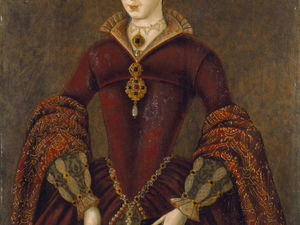Camra tackles the craft ale conundrum
For such a forgettable product, Watneys Red Barrel seems to have left a rather strong impression. Within the real ale fraternity, it has become almost a swearword – uttered quite a lot, but always with a curled lip of disdain.
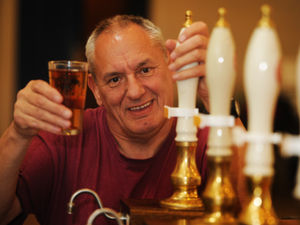
This probably shouldn't come as a surprise. When Express & Star journalist Michael Hardman founded the Campaign for Real Ale some 47 years ago, it was a deliberate reaction against the bland, processed beers churned out in vast quantities in the 1970s. And of these, Red Barrel has become totemic.
But it is an image which Terry Hodges, a Camra member since the early days, thinks the group should move on from. Sampling the fine range of beverages at the Stourbridge Beer Festival, the Kidderminster record shop owner thinks it is time for the organisation to embrace the new generation of keg beers lovingly crafted by microbreweries, which he says are a world away from the gassy, generic beers forced onto tied pubs by the brewing giants of the 1970s.
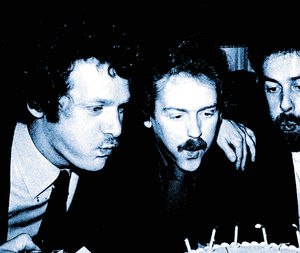
"They keep talking about Watneys Red Barrel, but all these new brewers weren't around when we had Watneys Red Barrel and Double Diamond," he says. "Instead of banging on about that, they should get together and explore what all these young people are doing with their imaginative products."
The subject on everybody's lips at the festival, which runs at Stourbridge Town Hall until Saturday, was a vote at Camra's annual meeting in Coventry at the weekend. A motion calling for the organisation to represent the drinkers of all types of beer, including keg ales and lagers, controversially failed, despite attracting 72 per cent support among the 18,000 members who voted. Camra's rules required 75 per cent support, and the outcome has left a bitter taste in the mouth for some, as well as divisions that have inevitably been played out on social media.
The meeting did, however, approve changes that will see the organisation providing educational information about all beer styles, as well as allowing the sale of lagers and keg beers at Camra beer festivals, which some will see as a sensible compromise.
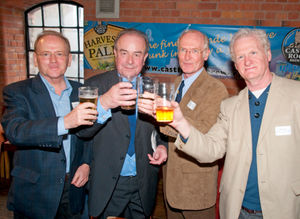
To understand the importance of the differentiation between real ale and keg beer, one has to look back to Camra's origins in 1971. The term "real ale" was coined by Hardman and his friends in the early 1970s, referring to beers that were served in traditional casks, and were still "live" and fermenting when they were served. This distinguished them from the likes of Watneys which were artificially filtered and pasteurised for sale in sealed kegs, and then pressurised with the addition of carbon dioxide. This made life easier for the vast network of pubs the big breweries controlled at the time, the beer could be stored for weeks on end. But it also made for a bland, generic flavour for which Red Barrel has become a byword.
Most would agree Camra has played a huge rule in changing this culture. The 2018 edition of its Good Beer Guide lists more than 1,700 breweries producing in excess of 7,000 different beers, with more styles and flavours than there have been for decades. But a side effect has been the growing number of small independent "craft" breweries which produce keg beers many would say are of equal, if not better, standard than some of the cask ales favoured by Camra. Many traditional "real ale" breweries, such as Joules in Market Drayton have also added "craft lager" to their ranges, further blurring the distinction.
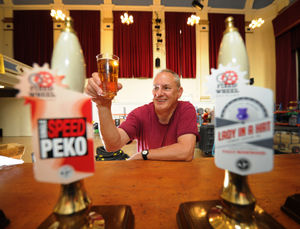
New technology did lead to Camra softening its position on keg beers a little in 2015, when it agreed to recognise "real ale in a key keg", a new type of keg which did not require beers to be filtered and pasteurised beforehand, retaining all the flavour of beer served in a cask. A number of these beers are on offer at the Stourbridge Beer Festival, although Camra policy is now to refer to them as "key cask" rather than "key keg".
While it seems most Camra members appreciate that quality of some of these products, coming up with a set of criteria to define what Camra should embrace has proved tricky.
"We have a legal definition of real ale, it is a living product conditioned in a cask," says John Ellis, a Camra member of nearly 30 years who keeps two pubs in Telford.
"But what is a 'craft beer'? I imagine most of the international breweries would describe their products as 'craft'. Being cynical, I would say 'craft' is just another word for 'expensive'.
"I do sell lager in my pub, I will happily sell Amstel from the Netherlands, or Joules from Market Drayton, but I wouldn't touch the mass-produced lagers with a bargepole."
Adrian Zawierka, chairman of Camra's Telford branch, voted against the changes. He believes cask beer is the gold standard and that Camra's role should be encouraging breweries to produce beer in this way. But he says he would have no problem in offering locally produced lagers at beer festivals if there was a demand – and they met the required standard.
The outcome of the vote, and even the precise meaning of the motion "to represent the interests of all pub-goers and beer, cider and perry drinkers" has been the subject of fierce debate in the aftermath of the meeting.
John Nightingale, chairman of Wolverhampton Camra, says the talk about lager and keg beer was a red herring.
"It was a badly worded motion that was supposed to be about supporting pubs, people have read into it something completely different," he says.
"I'm personally extremely disappointed and surprised that it failed."
Phil Zjalic, chairman of Camra's Stourbridge and Halesowen branch, declined to comment. But writing in the event's programme, festival secretary Tony Morgan acknowledged that "some people get over-excited about the term 'keg', remembering that Camra's very existence began as a crusade against the tidal wave of keg beers and lagers swamping pubs in the early 1970s."
Today's key keg or key cask beers are miles away from the bland, gassy products of that era," he says.
Mr Morgan adds: "One of the problems facing Camra is that many 'craft' breweries are producing 'keg' beers that outshine the blander, mass-produced 'cask-conditioned' beers.
"It is almost as if modern technology has outflanked Camra's definition of real in a way that many would have thought impossible even a few years ago."



